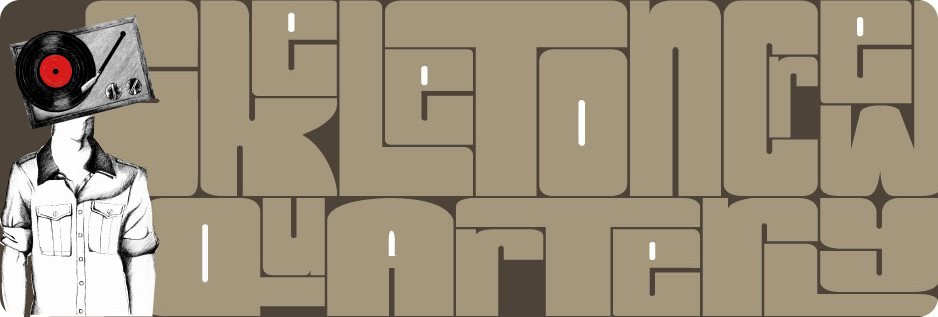
High Violet
The National
4AD Records.
SCQ Rating: 90%
Much of Boxer’s bid for “modern classic” status resided in its celebrated use of restraint. Gone were the half-drunk assertions that likewise humored or haunted ‘Karen’ or ‘City Middle’ and gone were Matt Berninger’s therapeutic bellows that lionized ‘Abel’ and ‘Mr. November’. By substituting Alligator’s isolated bouts of energy with rich subtleties – Bryan Devendorf’s rhythmic percussion, brass and string arrangements, plus the help of Sufjan Stevens and Padma Newsome, which never hurts - Boxer avoided acting as the comedown record it could’ve been, branching out instead of spiking upward. If that 2007 effort presented a skeletal inkling that The National were becoming expert arrangers, High Violet hammers the point home, taking their great material to higher, more resonant levels.
In an interview with Drowned In Sound, Matt Berninger explained the resounding goal of the band was to meet expectations by delivering something “awesome”. By that measure, High Violet contains the same less-is-more quality songwriting circa Boxer with a kitchen-sink’s worth of understated embellishments scrubbed in. Not that any of it sounds calculated or opportunistic; merely, High Violet sounds as if The National wanted to make a universally loved record, and threw all they had into it. The results are hard to ignore. ‘Bloodbuzz Ohio’’s atmospheric momentum moves contagiously across several varied but upbeat (well, ‘upbeat’ by National's definition…) highlights: ‘Terrible Love’ stomps over a lo-fi foundation of graying tones, rustic yet modernly compressed, while ‘Conversation 16’ builds just a few decibels shy of an Alligator climax with the strangely astute relationship-summation “I was afraid I’d eat your brains / cause I’m evil.” It takes a brilliant wordsmith like Berninger to contextualize such a phrase without letting it cheapen the narrative but it’s the two sets of brothers, the Dessners and Devendorfs, who make every hair on the listener’s arms stand straight while it’s sung.
A solid argument can be made that The National are never in finer form than on their slower songs. High Violet adds to that already arresting canon with songs at least partially indebted to the band’s growing vivacity for arrangements. ‘Sorrow’, a tightly strummed slice of melancholy replete with fractured piano and a rising choral, feels like a widescreen adaptation of ‘Daughters Of the Soho Riots’. Further down the record, ‘Runaway’ placates gentle mantras similar to ‘Start A War’, only backed by solemn brass instead of strings. Because The National have such a singular sound, this lineage traced to older material is inevitable and largely considered sport, since none of these semblances steal the thunder of High Violet’s upgrades. As a finale, the progressive couplet of ‘England’ and ‘Vanderlyle Crybaby Geeks’ serves their sad-bastard reputation splendidly; ‘England’ as an arena-closing epic unlike anything previously recorded to tape and ‘Vanderlyle Crybaby Geeks’ as a show-off, one so beautiful and easy, only Berninger’s lyrics give it any quandary to wrestle over.
As someone who makes a daily effort to stay informed on new music – not to mention being a longtime National fan - I find it difficult to assess a record of High Violet’s hype without falling privy to its hyperbole or backlash. If High Violet is The National’s finest release, it isn’t terribly obvious. Like previous records, this one contains an oddball or two (‘Anyone’s Ghost’) that seeks only to serviceably fill gaps between the brilliance. What High Violet handily makes apparent, however, is that the long-running better-record debate pitting Alligator against Boxer just got twice as complicated. We should move beyond fickle comparisons at this stage of The National's career and simply bask in one of indie-rock's few active dynasties.















